Tagged “book”
Recently read: Piranesi, by Susanna Clarke
I read this book in two days while on holiday in Ibiza. It’s been a while since I’ve finished a book so quickly, but it’s short and once it had me locked in I couldn’t put it down.
The old adage that you shouldn’t judge a book by its cover is definitely true of this one. The cover depicts a faun standing on a marble column and conjures images of fantasy and mythology. There is an element of that, but with constant hints to the modern world. And as clues emerge you start to wonder if you’re really in an another time and space, or in the middle of a dream or some Jacob’s Ladder style trip.
The protagonist, Piranesi, is really likeable and I loved the humour too. The puzzle he’s trying to solve called to mind Memento and the dream-like feel reminded me of the scene in Inception where Cobb meets Saito in Limbo.
I loved it! Thanks to Craigy B for the recommendation.
Recently read: Klara and the Sun
I didn’t have the appetite for Kazuo Ishiguro’s latest novel during the pandemic. I started it, but as the underlying sense of melancholy and “something bad around the corner” began to set in – just like it did in Never let me go – I realised I wasn’t in the right frame of mind for it. Cut to 2025 and it was time to give it another go.
I’d read before that Ishiguro is primarily interested in exploring what it is to be human, and uses science and technology elements as a device to support that. In Never let me go the device was cloning. In this book, the narrator is an “artificial friend” named Klara who is an AI-powered, empathetic android, and Ishiguro uses Klara’s unique perspective to shine a light on human behaviour and motivations.
I won’t attempt to properly review the book when others have done it much better. I’ll just say I really enjoyed it and recommend it.
Here are a few scrappy notes about themes I found interesting and jotted down.
- Scientific and technological advancements that present moral questions
- the idea of genetic editing (modification, I guess) to gain advantage, but with risks and side-effects. The gamble this represents.
- human loneliness
- blind faith/religion (which even Klara, as a rational machine, learned)
- Klara’s capacity for innocence, morality, contentment in a way that the humans seemed incapable of
- The idea that we can’t create identical clones of people because it’s not just their makeup that makes them unique; there’s also how others love and perceive them (which can’t be copied)
- the potential dark side-effects of our societal choices and technological advances: environment collapse and pollution; societal divisions (the father Paul’s armed community)
Recently read: The sound of being human, by Jude Rogers
Clair bought me Jude Rogers’ book for Christmas thinking I would enjoy it – and I did. I love the idea of chronicling the milestones of your life using music – music that touched you, that you were obsessed with, or that bonded you with significant others.
I also enjoyed reading the science behind the feelings. As Jude asked in the first chapter:
How do songs affect our emotions so profoundly? How can they activate memories instantly?
It turns out that babies can recall what they heard while in the womb, and are predisposed to get music in a manner beyond advanced computers. The medial prefontal cortex – an area of the brain linked to our sense of self – is involved in tracking melodies. There are lots of these interesting insights.
Jude’s tunes ranged from Abba to Krafterk to Toots and the Maytals, which I found good fun. And as proof of music’s facility for time-travel, her final chapter on Prefab Sprout’s I trawl the megahertz transported me back instantly to my desk at Bright Signals’ office in 2018 during my contract there, where my friend Andy’s playlists introduced me to that unique tune.
Recently read: The Great Gatsby
I’ve just finished reading F. Scott Fitzgerald’s The Great Gatsby. It’s short so was a perfect holiday read.
I enjoyed the ride as the mystery of Gatsby’s identity was revealed. Although it transpired he was no angel, I sympathised with his aspirations to make the most of himself. I felt sorry for him as he pushed against the tide, and others either exploited his generosity or (in the case of the “old money” set personified by Tom Buchanan) blocked him from moving in their circles.
The last passage is pretty thought-provoking:
Gatsby believed in the green light, the orgastic future that year by year recedes before us. It eluded us then, but that’s no matter—tomorrow we will run faster, stretch out our arms farther. . . . And one fine morning——
So we beat on, boats against the current, borne back ceaselessly into the past.
From what I can gather it alludes to the futility of constantly “reaching” in the face of opposition and at the expense of the good opportunities and life you could already have. It’s a path that can lead you to bad morals and values and end in unhapiness. It has special meaning in the context of the American Dream but I think there’s a general theme. Live in the present; learn to value what you have.
Recently read: I’m starting to worry about this black box of doom
I loved Jason Pargin’s I’m starting to worry about this black box of doom.
It’s one of those stories that captures the zeitgeist amazingly well (a bit like The Social Network did back at the time). In this case it captures the tendency for folks online to blow things out of proportion; to catastrophise and to think the worst.
The black box has a boogie-man physical form in the book, but it soon becomes clear that it’s a clever metaphor for perhaps the real source of anxiety and division in the modern culture.
I loved the charcacters, the dialogue and the dark comedy. I especially enjoyed Ether’s vain attempts to make Abbot realise that everything isn’t really terrible and is arguably – arguably! – the best we’ve ever had it.
I 100% recommend this book.
I’ve just finished reading Bicycle Diaries City, by David Byrne. It’s a log of Byrne’s observations and insights as he pedals through major cities of the world including Istanbul, London, Berlin, Buenos Aires, San Francisco and Manilla.
It was an enjoyable read that ambled along pleasantly throughout but got much better in the final chapters as he describes his efforts to effect change and his thoughts about how things could be.
I’ve just read The Inner Game of Tennis, by Timothy Gallwey
This was an interesting read, recommended by some experienced players at my table tennis club. (The book focuses on tennis but most of it is transferable). This tip came at a good time, as I’m looking to reduce tension from my game.
The author presents the following ideas:
You have two selves. Self 1 is your ego. Self 2 is your body and unconscious brain/memory.
Tension with negative impact comes from trying and overthinking – characteristics of Self 1. Let’s avoid this.
Self 2 is amazing. Let it do its thing without ego interference. Don’t “try hard”.
Observe what’s happening during a game without attributing good or bad, criticism or praise.
Learn to concentrate and still the mind. One method is to focus on the ball, both visually and on sonic rhythm. In between points when those aren’t available, just notice your breathing (without trying to breath differently).
During training or before matches, program self 2. This involves visualising (without verbal instructing) a stroke as I want to play it, then let it happen.
When programming Self 2 you can program for:
- results: (visualise the ball arcing over net and onto other side); or
- form: shadow the stroke inc proper start and finish position. Pause and store the visual. Shut eyes and imagine the visual. Do it again and notice how it feels. Then play but don’t “ask” Self 2 to do it, let it happen. Or
- identity: in training pretend I’m an actor playing the role of, say, Timo Boll. Don’t worry about the ball going out. Just play like them and go for it.
Without ego interference, Self 2 will automatically correct things so that the results match the programming.
It occurred to that I could try this programming for some of the harder techniques such as the reverse pendulum serve.
The writing style of this book felt a bit dated (it was written in the seventies so it’s perhaps understandable). However the ideas are really interesting and I’ve been trying things out in training, with some success so far.
Recently read: Lost Connections by Johann Hari
When chatting with a consellor in January about some bouts of low mood and mental fatigue, I described one symptom as a strange sense of disconnection. And while the recent lockdowns during the pandemic were obvious contributors to that, they didn’t feel like the full story.
Reassuringly it seems I’m far from alone in feeling this way, since one of her suggestions was to read Johann Hari’s bestselling book Lost Connections: why you’re depressed and how to find hope.
Hari argues that the primary factors causing depression and anxiety are environmental and societal – not the “chemical imbalance” nor the pill-based solution story we’ve been sold for so long.
Hari frames depression and anxiety as natural reactions to and signifiers of an imbalance caused by unmet human psychological needs. The modern world can be lonely and runs on dubious values. We need community, meaningful values, interaction with the natural world, a sense of worth and being respected, a secure future, and release from any shame resulting from previous mistreatment.
On the whole I really enjoyed this book – well, as much as you can enjoy a book about depression!
I’ve just read Join the Future, by Matt Anniss
It’s important to set the record straight. Normally when people talk about the early UK scene the same few things get mentioned. The real underground never gets talked about."
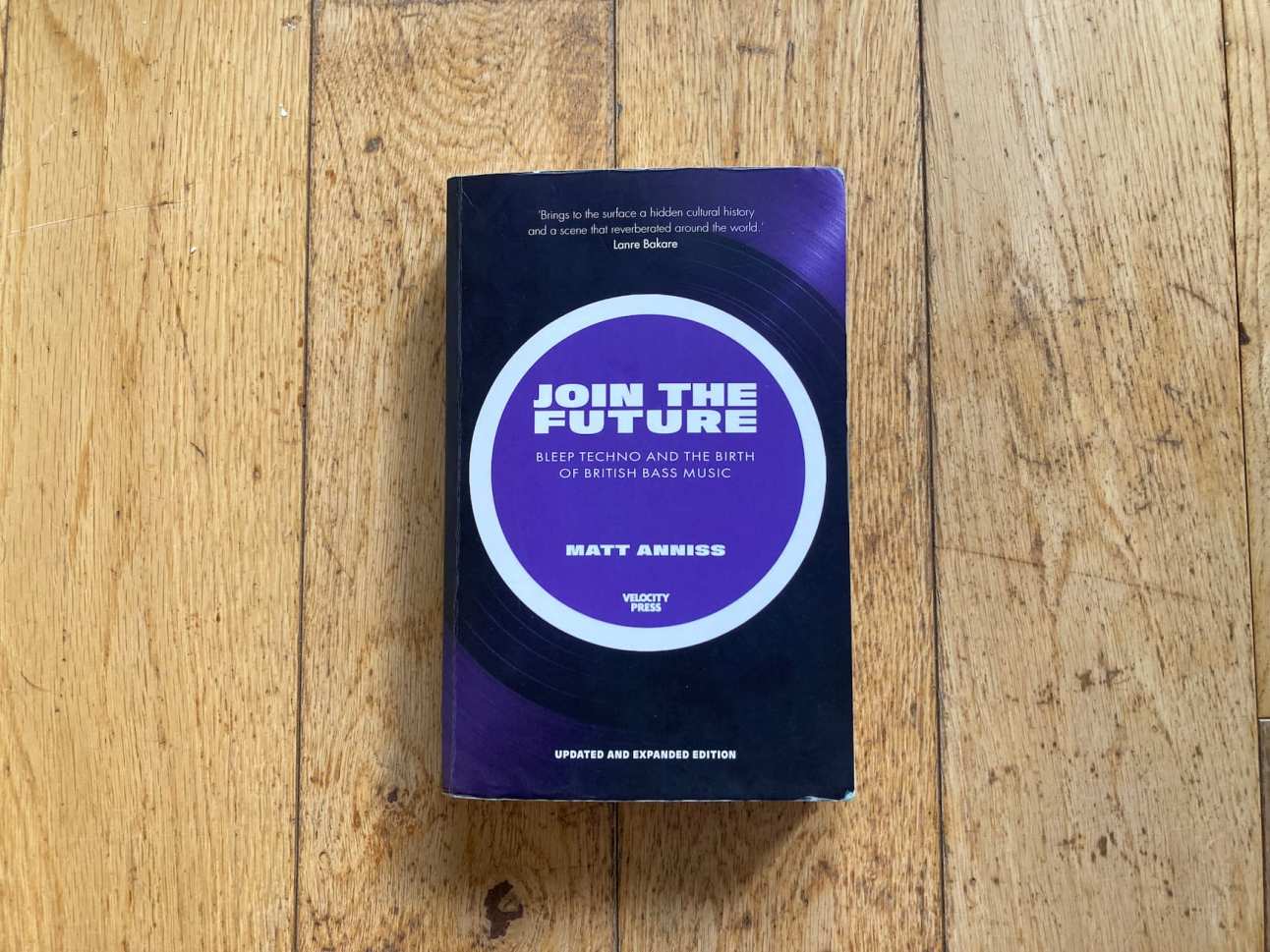
I loved this! It tells the stories behind many of the lesser-reported UK scenes and record labels. And it really helped to join a lot of musical dots for me, covering music I first heard on cassettes as a teenager thirty years ago. (That includes fairly obscure labels such as Chill – that brilliant quote about “setting the record straight” was from their A+R man Tim Raidl).
I also loved Matt’s passion for telling the stories of these people and communities.
Highly recommended.
I’ve been listening to lots of jazz of late and loved seeing Herbie Hancock live in August 22.
So I thought I’d explore further and listen to the audio recording of Herbie’s autobiography Possibilities, narrated by the great man himself.
I really enjoyed it. Herbie’s story is really interesting and entertaining. He’s been at the forefront of so many iconic scenes – from playing in Miles Davis’s band, to writing many classics of his own, to breaking new ground with his Mwandishi sextet and the Headhunters.
I love his carefree and curious spirit and his willingness to experiment with technology (from the fender Rhodes, to other synths, to the internet) and take risks in other aspects of life.
What a talent and what a guy!
I’ve started reading The New Breed: How to think about robots, by Kate Darling.
I’ve started reading The 15 Minute City, by Natalie Whittle.
I’ve started reading Station Eleven, by Emily St. John Mandel.
I’ve started reading Uncanny Valley, by Anna Wiener.
Thanks for the recommendation, @mrtomchurchill.
I’ve started reading Kindred, by Octavia E. Butler.
I’ve started reading Stories of your life and others by Ted Chiang.
I’ve just finished reading Never Let Me Go by Kazuo Isihiguro.
Afterwards I was also keen to see the film, which I enjoyed. It featured great performances by Carey Mulligan and Andrew Garfield in particular, and a haunting score. Although I enjoyed the book, I found it a little slow-paced and so watching the film helped bring it all together (despite taking a few liberties with the plot).
Lastly, I enjoyed this short interview with the author in which he interestingly remarked that the sci-fi element was just a device to support the primary topic of managing friendship and loving relationships within our short lifetimes.
I’ve started reading Exhalation by Ted Chiang.
I’ve started reading Recursion by Blake Crouch.
I’ve started reading The Rise of the Ultra Runners, by Adharanand Finn.
I’ve started reading Andrew Weatherall – A Jockey Slut Tribute.
I’ve started reading The Left Hand of Darkness by Ursula K. Le Guin.
I’ve started reading A Promised Land by Barack Obama.
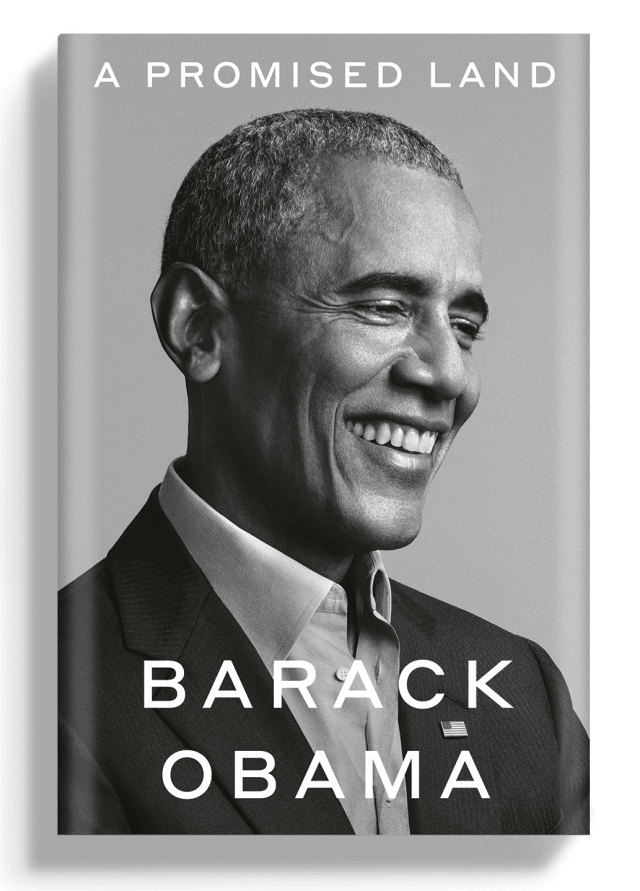
An ebook boilerplate (on Go Make Things)
My ebook boilerplate is a command-line script that uses Pandoc, wkhtmltopdf, and Calibre to compile all of the files, syntax highlight code snippets, and automatically generate all of the file formats.
I’ve recently been discussing with Clair some options for publishing an ebook, which reminded me of this.
This is Chris Ferdinandi’s set-up for creating an ebook in multiple formats (PDF, EPUB, MOBI, HTML) from a collection of markdown files.
Also useful, on the same subject: Heydon Pickering’s Every Layout is Released: Some Facts and Andy Bell’s Every Layout: How it works
The Man in the High Castle by Philip K. Dick
The second Phillp K Dick I’ve read this year is his alternative-history sci-fi classic.
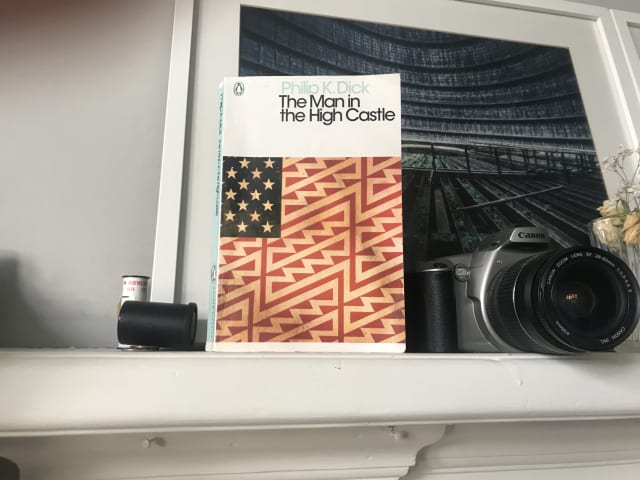
In this book, Dick protrays an alternate reality where the Axis powers have won the second world war and America is under the rule of Imperial Japan and Nazi Germany.
Interestingly, many of the characters use the ancient Chinese text the I Ching for guidance, and there’s also a clever “book within a book” subplot in which the novel The Grasshopper Lies Heavy depicts an alternate history in which the Allied forces prevailed.
Having now read a couple of Philip K. Dick books this year, I’m arriving at the conclusion that while I don’t love his writing style, this is counterbalanced by his creativity and the interesting ideas which stay with you long afterwards.
Do Androids Dream of Electric Sheep? by Philip K. Dick
In my ongoing quest to catch up on books I should have read years ago, I recently finished reading “Do Androids Dream of Electric Sheep?” – the book on which Bladerunner was based.
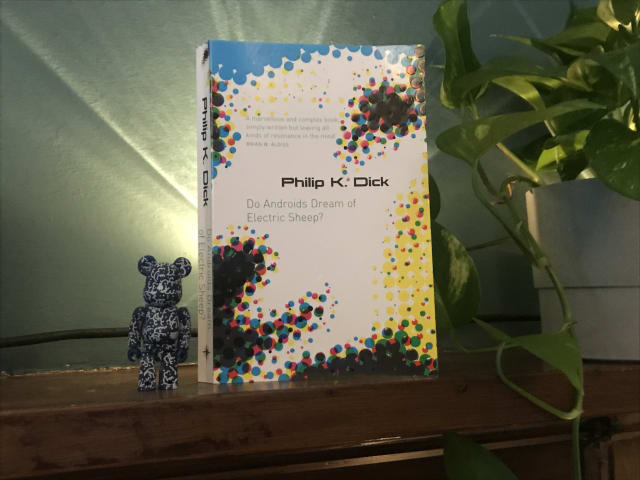
I’m a big Bladerunner fan – and also loved last year’s follow up movie, Bladerunner 2049 – but for me, the book was a mixed bag.
It illuminated some of the parts of the film that in retrospect hadn’t fully sunk in – like why animals (such as Tyrell Corp’s owl) were so important in post-apocalyptic San Fransisco, due to most species being endangered or extinct.
It also went much deeper into the question of whether empathy and similar social emotions were solely human abilities or could be felt by androids too. And I can see now see why this was explored further with lead character Joe in Bladerunner 2049.
On the downside, the techno-religious angle of Mercerism didn’t really work for me – although maybe I didn’t pick up properly on the metaphor. Also, I was kind of disappointed to learn that there actually is an electric sheep in the story! I had always loved the title and thought it was just a really clever reference to counting sheep in your dreams, rather than something so literal. Never mind!
All of the downsides were worth it, however, for the detailed parts about Voight-Kampff empathy tests. I have always loved the ideas and language around this, such as measuring androids for their Blush Response and other signs of empathy when asked questions which would normally elicit a reaction in humans.
All in, I’m glad I read it to gain the additional background to the movies.
I’m now off to watch Bladerunner again.
The Testament of Gideon Mack by James Robertson
A strange, otherwordly and often pretty funny tale of a Scottish minister’s dance with The Devil.
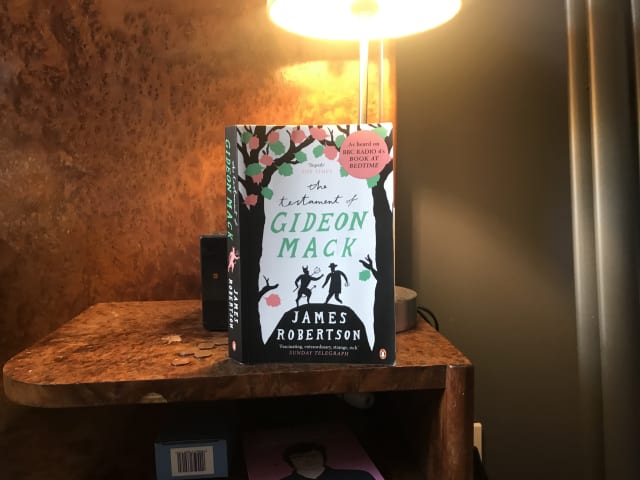
Cheers for the recommendation, Mick!
A Visit from the Goon Squad, by Jennifer Egan
I really enjoyed this book, recommended to me by Gillian and Tom.
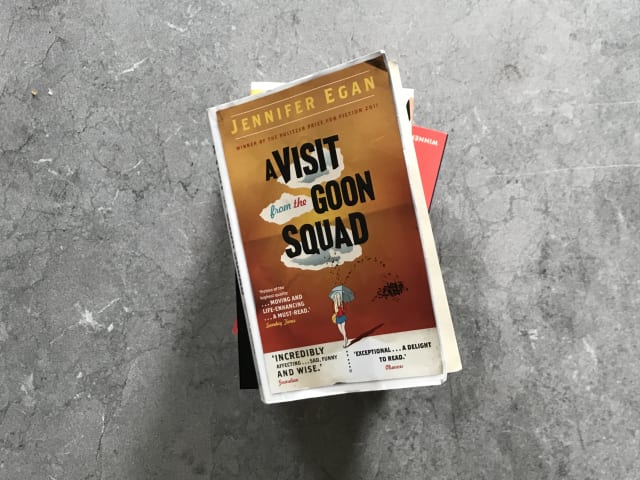
It’s set primarily in New York and tells the stories of a cast of interconnected characters (and their children) linked by the music industry, taking in themes of youth and ageing, loss and regret, insecurity, celebrity and image.
There are some great moments including Rob’s story which called to mind The Talented Mr Ripley; Jules’s unpublished and unhinged newspaper article on the celebrity interview which sent him to jail; and the dystopian final chapter which suggests where the internet and the world of influencers might be headed if we don’t watch out.
I loved author Jennifer Egan’s storytelling, dark humour and also the way she switched her writing style dependent on the era or character.
Recommended!
I’ll tell you wot – that woz a propa’ poolside page-turner and no mistake. Nice work Russ Forman.

1984 by George Orwell
I’ve just read 1984 by George Orwell. I know, I know… I should have done this a long time ago. Anyway, here’s what I thought.
I remember a copy of 1984 being around the house when I was growing up but for some reason I never got around to reading it. I did, however, see the film when I was young – the “Room 101” scene in particular being unforgettable – and have always known the general plot.
On a recent work trip I realised while in the airport shop that I’d left a book at home so it seemed like as good a time as any to pick up a copy of 1984 and scratch this particular itch.
As a book about a dystopian future, I knew it would be dark, but it was even darker that I imagined. The constant sense of dread was really palpable.
I loved the concepts Orwell created – the Two Minutes Hate, doublethink, Thought Crime, Room 101 to name but a few.
I also loved the language in general and the appendix, The Principles of Newspeak.
And even though it was heart-wrenching and pretty harrowing, I loved the final descent into brainwashing (or “re-education”) and ultimately, betrayal.
This was an amazing book that I loved reading, while not necessarily always being ”enjoyable”.
Stasiland
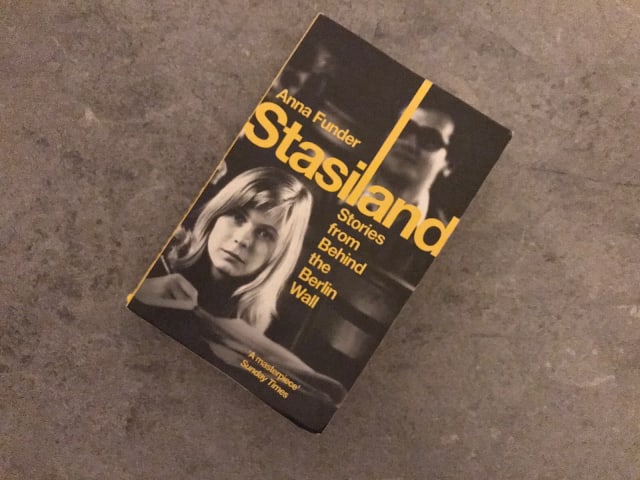
I've just finished reading Stasiland by Anna Funder, having received the recommendation from a friend.
It tells a series of extraordinary and often heart-wrenching stories from the underbelly of the former East Germany. I thought it was fantastic and highly recommend it.
See all tags.